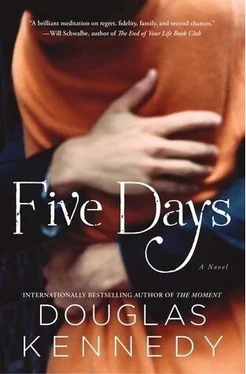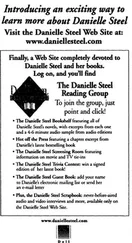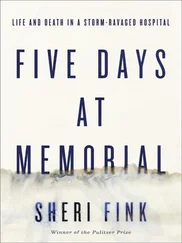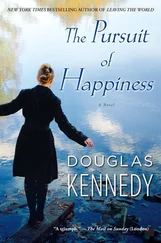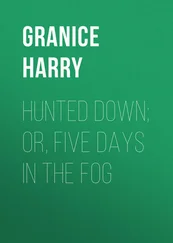Douglas Kennedy - Five Days
Здесь есть возможность читать онлайн «Douglas Kennedy - Five Days» весь текст электронной книги совершенно бесплатно (целиком полную версию без сокращений). В некоторых случаях можно слушать аудио, скачать через торрент в формате fb2 и присутствует краткое содержание. Жанр: Современная проза, на английском языке. Описание произведения, (предисловие) а так же отзывы посетителей доступны на портале библиотеки ЛибКат.
- Название:Five Days
- Автор:
- Жанр:
- Год:неизвестен
- ISBN:нет данных
- Рейтинг книги:3 / 5. Голосов: 1
-
Избранное:Добавить в избранное
- Отзывы:
-
Ваша оценка:
- 60
- 1
- 2
- 3
- 4
- 5
Five Days: краткое содержание, описание и аннотация
Предлагаем к чтению аннотацию, описание, краткое содержание или предисловие (зависит от того, что написал сам автор книги «Five Days»). Если вы не нашли необходимую информацию о книге — напишите в комментариях, мы постараемся отыскать её.
Five Days — читать онлайн бесплатно полную книгу (весь текст) целиком
Ниже представлен текст книги, разбитый по страницам. Система сохранения места последней прочитанной страницы, позволяет с удобством читать онлайн бесплатно книгу «Five Days», без необходимости каждый раз заново искать на чём Вы остановились. Поставьте закладку, и сможете в любой момент перейти на страницу, на которой закончили чтение.
Интервал:
Закладка:
‘My wife. She needs a scan. Some spinal thing. Nothing life threatening. More a curvature thing. They had a space here before Midcoast in Brunswick. So. ’
I glanced down at the chart I held in my hand. A chart listing my next five appointments before lunch break. Muriel Copeland was not listed there. Sometimes there is a God.
Richard saw me check my chart.
‘Don’t worry,’ he said, ‘she’s having the scan done now.’
‘I hope she’ll be OK. How are you?’
He gave me the most cursory of shrugs, then looked up at me again, taking me in this time.
‘You look wonderful,’ he finally said.
‘Thank you,’ I said. ‘I was so horrified and saddened to hear about Billy.’
He bit down on his lower lip and bent his head again. Then, in a near whisper:
‘Thank you.’
‘I don’t know how you cope with such a terrible—’
‘I don’t talk about that anymore.’
His tone was abrupt, like a door slammed shut.
‘Sorry,’ I said.
‘I heard you’re no longer living in Damariscotta.’
‘And where did you hear that?’
‘It’s a small state.’
Silence. Then he said:
‘I made a mistake. A big mistake.’
‘So it goes.’
‘I think about it all the time.’
‘So do I.’
Silence.
His coffee finished dispensing. He let the cup sit there.
‘So you live in Portland now?’ he asked.
‘That’s right.’
‘Are you happy?’
‘Happier.’
Silence. I checked my watch. I said:
‘My next patient awaits me. So. ’
‘I’ve never stopped—’
I held up my hand.
‘That’s the past tense.’
Silence. He hung his head.
‘I wish you well, Richard.’
And I walked away.
I ran when I got home that night. I ran the next morning. I ran and ran and ran. Six days a week, five miles a day. Rarely heading out in the evening — unless the old distress was creeping in. Always up before dawn. Always heading across Casco Bay, careening my way through assorted neighborhoods, encircling the Portland lighthouse, saluting that septuagenarian fellow jogger with a quick wave, then pushing my way towards home.
Home.
The realtor called me last week, informing me the owners of the apartment — a retired couple who now live most of the time in Florida — needed to sell the place. And they needed a fast sale. As in, they would be willing to accept $190,000 if I was willing to close on the sale within two months.
‘Let me think about that,’ I said.
I called Lucy. She called a man named Russell Drake in Brunswick who organized mortgages. Money was cheap right now, he explained. Around $75 a month repayment per $1,000 borrowed. So if I was to borrow $150,000 dollars for a period of twenty-five years, I’d be paying $1,350 dollars a month. just a bit more than what I was paying right now for rent. And yes, the sum borrowed would be the equivalent of two and a half years of my salary at the hospital, so several banks would be most pleased to offer me a mortgage. ‘You’ll probably have a bunch of suitors — which means we can negotiate the finer points to your advantage. And yes, I think a two-month closing is perfectly doable. So shall we meet within the next day or so and get the ball rolling?’
I called the realtor back and said:
‘One sixty-five is what I can pay. If the sellers accept that, we can close within the time frame they want.’
The offer was accepted the next morning.
Home.
The apartment no longer would be someone else’s property in which I was loitering for a spell. It would be mine — and a place for Ben and Sally to return to in the years to come before it became theirs. The place you ‘return to’ inevitably becomes the place you ‘come into’. As my father used to say, the farce of life is grounded in one terrible truth: we are all just passing through.
Home.
On the morning that I was to sign my divorce agreement I did my post-dawn run, then came home and showered and changed into a suit — the one suit I own. The black suit I wore at my father’s funeral. The suit I should have augmented with another suit by now. But since I never wear suits.
There was absolutely no need to put on these funereal clothes — except that something within me told me I should mark the occasion formally. Even though my lawyer said that she could mail or courier the papers to me at home or work, I told her I would come by her office and sign them myself.
And if you are signing a legally binding document that is about to end a two-decade relationship — and one which has taken up half my life — dressing formally for the occasion seems only appropriate.
Amanda Montgomery’s office was a ten-minute drive across Casco Bridge in an old warehouse building in South Portland. A quasi-funky, quasi-gentrified area. Amanda was a large, relentlessly cheerful woman around my age. She worked alone — only employing a receptionist who doubled as her bookkeeper, secretary and general major-domo. She made a point throughout the divorce of trying to keep the process as non-disputative as possible in order to keep the cost reasonable. She coolly stood down Dan’s initial belligerence. Once he saw sense (and it was his lawyer who — according to Amanda — got him to lose his anger and realize that we were offering him a very good deal), it was simply a matter of ‘the usual legal and state bureaucracy — and a considerable amount of tedious paperwork’.
Here I was today, on time for our prearranged morning meeting, being offered coffee by her assistant before being ushered into Amanda’s office.
‘My, you’re dressed up,’ she said as I came in. Her office had a big old-fashioned wooden desk. A big high-back swivel chair, also very much a throwback to the 1930s, a pair of overstuffed armchairs for clients. A small conference table, covered with documents. Amanda was dressed in a similarly somber suit, and explained she was due in court in an hour ‘to try to stop my client from being eviscerated by his soon-to-be ex-wife. Your ex doesn’t know how lucky he was that you were not interested in the sort of scorched-earth divorce I am trying to quell right now. Then again, did he ever know how lucky he was?’
‘You’d have to ask him that,’ I said quietly.
‘Somehow I don’t think that opportunity’s ever going to arise. Anyway, you have a job to go to, and I have a courtroom fistfight to go to. So all we have to do now is sign the papers and they will get shipped back to the court for official judicial signature. Then they will go up to Augusta where the actual Final Decree is issued.’
I nodded, saying nothing. I could see Amanda studying me.
‘You OK, Laura?’
‘You mean, am I having second thoughts?’
‘That has, in my experience, happened. though, most of the time, six months later, the client was back here again.’
‘I’ve never had second thoughts from the moment I decided to end the marriage.’
‘I always knew that. But I am still bound — not by law, but by my own set of rules — to ask that question before a client signs the papers and things are all but writ in stone.’
‘I wish I had second thoughts.’
‘It’s a terrible moment, even if it’s the right decision. The death of—’
‘Hope,’ I heard myself saying. ‘The death of hope.’
I blinked and felt tears. Amanda said:
‘I’ve sat here and seen the toughest businessmen in the state — real cutthroat bastards — sobbing their eyes out before signing the papers. One guy — I can’t tell you who he is or what he does, because you’d know his name — old schoolfriend of mine which is how I got the case. he actually spent almost half an hour just staring at the document before I gently told him that his wife was categorical about the fact that the marriage was over. “I’m afraid you have to sign the papers.” But he kept shaking his head, all disbelief. The death of hope. You got that one right. But when one hope dies—’
Читать дальшеИнтервал:
Закладка:
Похожие книги на «Five Days»
Представляем Вашему вниманию похожие книги на «Five Days» списком для выбора. Мы отобрали схожую по названию и смыслу литературу в надежде предоставить читателям больше вариантов отыскать новые, интересные, ещё непрочитанные произведения.
Обсуждение, отзывы о книге «Five Days» и просто собственные мнения читателей. Оставьте ваши комментарии, напишите, что Вы думаете о произведении, его смысле или главных героях. Укажите что конкретно понравилось, а что нет, и почему Вы так считаете.
